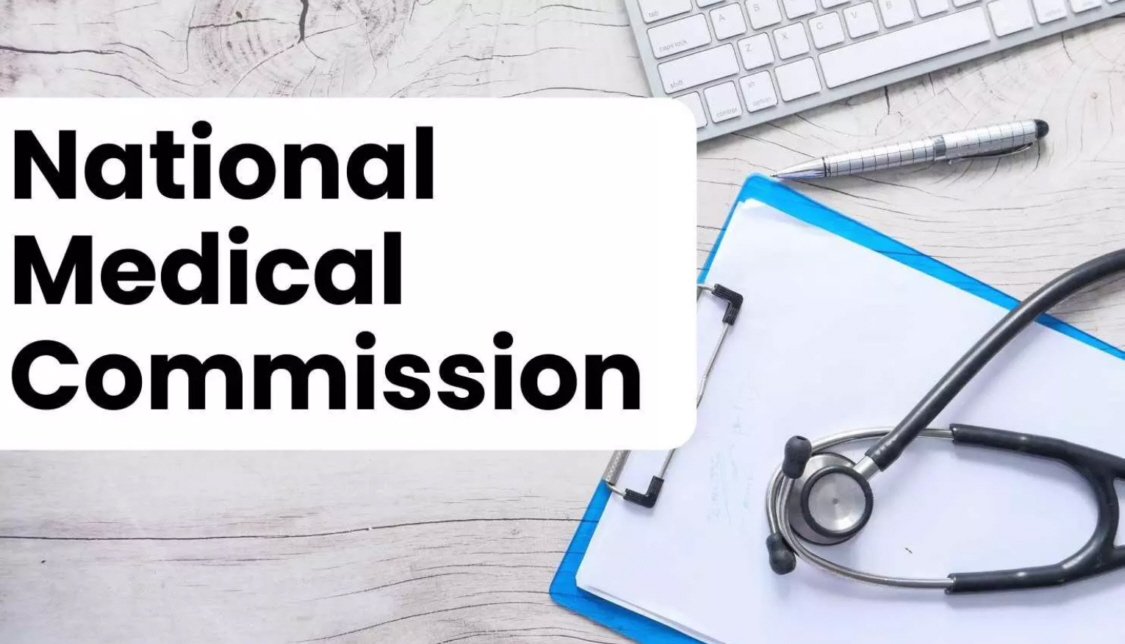Quality, Ethics, and Balance: NMC's Blueprint for the Future of Medical Education
The National Medical Commission (NMC) has ushered in a new era of regulations, fundamentally transforming post-graduate medical education across India.

The National Medical Commission (NMC) has ushered in a new era of regulations, fundamentally transforming post-graduate medical education across India. The recently-notified "Post-Graduate Medical Education Regulations, 2023" signify a paradigm shift, emphasizing the welfare of post-graduate students, their working conditions, and the overall quality of medical education.
The heart of the new regulations lies in recognizing post-graduate students as full-time resident doctors, committed to serving their roles with "reasonable working hours." This progressive step by the NMC aims to strike a balance between the educational demands of medical training and the well-being of aspiring doctors.
Dr. Vijay Oza, President of the Post-Graduate Medical Education Board of NMC, highlighted the transformative nature of these regulations. Previously, there was no explicit provision for leaves, contributing to significant stress among students. The new guidelines address this gap by stipulating a minimum of 20 days of casual leaves per year, in addition to five days of academic leave.
Structured Work-Life Balance: To alleviate the burden on students, the regulations introduce a weekly holiday, providing much-needed respite from their demanding schedules. Recognizing the human need for rest and recreation, the NMC acknowledges the importance of allowing students reasonable time for rejuvenation, contributing to a healthier work-life balance.
Accelerating Postgraduate Courses: Under the new regulations, undergraduate medical colleges now have the flexibility to commence postgraduate courses from the third year, a departure from the previous initiation in the fourth year for clinical specialties. This change paves the way for a more streamlined educational progression, ensuring that aspiring doctors can seamlessly transition into postgraduate studies.
Moreover, the regulations empower existing or proposed non-teaching hospitals owned and managed by the government to initiate postgraduate courses independently, without the necessity of an undergraduate college. This strategic move facilitates the establishment of postgraduate medical colleges in smaller government hospitals and district hospitals, expanding educational opportunities.
Accountability Through Leaves and Attendance: In an effort to instill a sense of responsibility, the regulations stipulate consequences for students availing leave beyond the permitted number of days. A student exceeding the specified leave limit will witness an extension of their course term by an equivalent number of days, ensuring that academic progress aligns with the established timelines.
Attendance remains a critical aspect of postgraduate education. The regulations set a benchmark of 80% attendance for students to be eligible to appear in examinations. This stringent requirement emphasizes the significance of regular participation in educational activities.
Residential Accommodation and Recognition: Recognizing the essential need for conducive living conditions, the regulations mandate colleges to provide appropriate residential accommodation to postgraduate students. However, it is noteworthy that residing in the hostel is not compulsory, allowing students the flexibility to choose their accommodation.
Furthermore, the regulations address the postgraduate degree registration process. Once a medical college receives permission to start postgraduate courses or seats, the course is deemed recognized for qualification registration purposes. This provision resolves longstanding challenges faced by students in registering their degrees after completing postgraduate examinations.
The Continuation of NEET-PG Examination: Acknowledging the practicalities of the transition, the regulations confirm the continuation of the existing NEET-PG examination until the proposed National Exit Test (NExT) becomes operational for postgraduate admissions. This transition ensures a seamless process for students while aligning with the evolving assessment methodologies.
Elevating Educational Standards: To raise the bar in postgraduate medical education, the regulations introduce a Minimum Standard Requirement document. This document will delineate the necessary infrastructure, faculty requirements, clinical material prerequisites, and other essentials for postgraduate institutes. The aim is to establish a standardized framework that ensures consistency and quality across medical education institutions.
Comprehensive Training in Essential Skills: A notable addition to the regulations is the mandatory inclusion of courses in research methodology, ethics, and cardiac life support skills for all postgraduate students. This holistic approach to education equips aspiring doctors not only with clinical expertise but also with essential skills that contribute to their overall competency and preparedness for diverse medical scenarios.
Penalty Clauses for Adherence: Recognizing the need for compliance, the regulations incorporate penalty clauses to ensure the effective implementation of these transformative measures. Penalties may include monetary fines, reduction in admission capacity (seats), or even complete stoppage of admissions. This stringent approach underlines the commitment to maintaining the highest standards in postgraduate medical education.
Upholding Institutional Integrity: The regulations retain the prohibition of student migration from one medical institution to another. This steadfast rule ensures institutional integrity and discourages practices that may compromise the educational ecosystem. Additionally, seat reservations in medical colleges for various categories align with the prevailing laws in states and Union territories, contributing to a fair and inclusive educational environment.
In conclusion, the National Medical Commission's "Post-Graduate Medical Education Regulations, 2023" herald a new era of transformative reforms. By prioritizing the well-being of postgraduate students, ensuring structured work-life balance, and elevating educational standards, these regulations aim to foster a culture of quality, ethical practice, and inclusivity within the medical fraternity. As stakeholders adapt to these groundbreaking changes, the stage is set for a progressive future in postgraduate medical education in India.
#NMC
